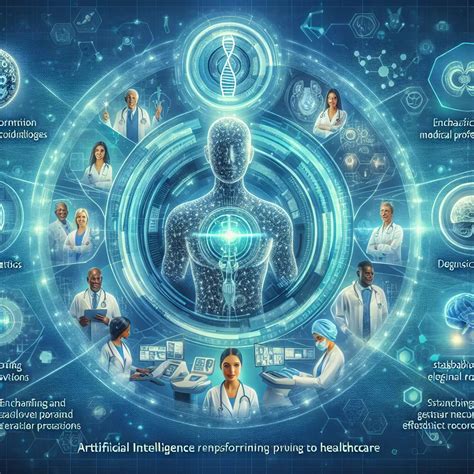The healthcare industry has undergone significant transformations in recent years, driven by advances in technology, changing patient needs, and the quest for improved outcomes. One area that has seen substantial innovation is infusion technology, which has revolutionized the way medications and nutrients are delivered to patients. In this article, we will explore the impact of infusion technology on healthcare, highlighting five key ways it has transformed the industry.
Infusion technology has been around for decades, but recent advancements have made it more sophisticated, efficient, and patient-friendly. From smart pumps to implantable devices, infusion technology has expanded its reach, enabling healthcare professionals to deliver personalized care with greater precision and accuracy. As we delve into the world of infusion technology, it becomes clear that its influence extends far beyond the hospital setting, impacting patient outcomes, healthcare economics, and the future of medicine.
What is Infusion Technology?
Before we dive into the ways infusion technology is revolutionizing healthcare, let's define what it is. Infusion technology refers to the use of medical devices and systems to deliver fluids, medications, or nutrients into the body. This can include everything from simple gravity-fed systems to complex, computer-controlled pumps that can administer precise amounts of medication over a set period.
Infusion technology is used in various healthcare settings, including hospitals, clinics, and home care environments. Its applications are diverse, ranging from chemotherapy and antibiotics to pain management and nutritional support.
1. Improved Patient Safety
One of the most significant advantages of infusion technology is its ability to improve patient safety. Traditional infusion methods, such as manual gravity-fed systems, are prone to errors, which can lead to adverse events, including medication overdoses or underdoses. Infusion technology, on the other hand, uses advanced algorithms and sensors to monitor and control the infusion process, minimizing the risk of human error.
For example, smart pumps with built-in safety features can detect potential errors, such as incorrect medication or dosage, and alert healthcare professionals to take corrective action. This has been shown to reduce medication errors by up to 80%, resulting in improved patient outcomes and reduced healthcare costs.

2. Enhanced Patient Experience
Infusion technology has also transformed the patient experience, making it more comfortable, convenient, and personalized. For example, portable infusion pumps allow patients to move freely, enabling them to continue their daily activities while receiving treatment. This has been shown to improve patient satisfaction, reduce anxiety, and promote faster recovery times.
Moreover, infusion technology has enabled the development of patient-centric care models, where patients can take an active role in their treatment. For instance, some infusion systems allow patients to adjust their medication doses or infusion rates, providing them with a sense of control and autonomy.

3. Increased Efficiency and Productivity
Infusion technology has also had a significant impact on healthcare workflows, increasing efficiency and productivity in various settings. For example, automated infusion systems can streamline medication administration, reducing the workload of healthcare professionals and minimizing the risk of errors.
Moreover, infusion technology has enabled the development of data-driven care models, where healthcare professionals can track patient outcomes, monitor treatment efficacy, and adjust care plans accordingly. This has been shown to improve patient outcomes, reduce healthcare costs, and enhance the overall quality of care.

4. Expanded Treatment Options
Infusion technology has expanded treatment options for various medical conditions, enabling healthcare professionals to deliver targeted, personalized care. For example, implantable infusion devices can deliver medications directly to the affected area, reducing side effects and improving treatment outcomes.
Moreover, infusion technology has enabled the development of novel therapeutic approaches, such as gene therapy and cell-based therapies, which rely on precise, controlled delivery of medications or cells to achieve optimal results.

5. Cost Savings and Reduced Healthcare Costs
Finally, infusion technology has been shown to reduce healthcare costs and improve resource allocation. For example, automated infusion systems can reduce waste, minimize the risk of medication errors, and optimize resource utilization.
Moreover, infusion technology has enabled the development of value-based care models, where healthcare professionals are incentivized to deliver high-quality, cost-effective care. This has been shown to reduce healthcare costs, improve patient outcomes, and enhance the overall quality of care.

Gallery of Infusion Technology





FAQs
What is infusion technology?
+Infusion technology refers to the use of medical devices and systems to deliver fluids, medications, or nutrients into the body.
How does infusion technology improve patient safety?
+Infusion technology improves patient safety by reducing the risk of human error, detecting potential errors, and alerting healthcare professionals to take corrective action.
What are the benefits of infusion technology for patients?
+Infusion technology can improve patient outcomes, reduce anxiety, and promote faster recovery times. It can also enable patients to take an active role in their treatment, providing them with a sense of control and autonomy.
In conclusion, infusion technology has revolutionized the healthcare industry, transforming the way medications and nutrients are delivered to patients. Its impact extends far beyond the hospital setting, influencing patient outcomes, healthcare economics, and the future of medicine. As infusion technology continues to evolve, we can expect to see even more innovative solutions that improve patient care, reduce healthcare costs, and enhance the overall quality of life.
